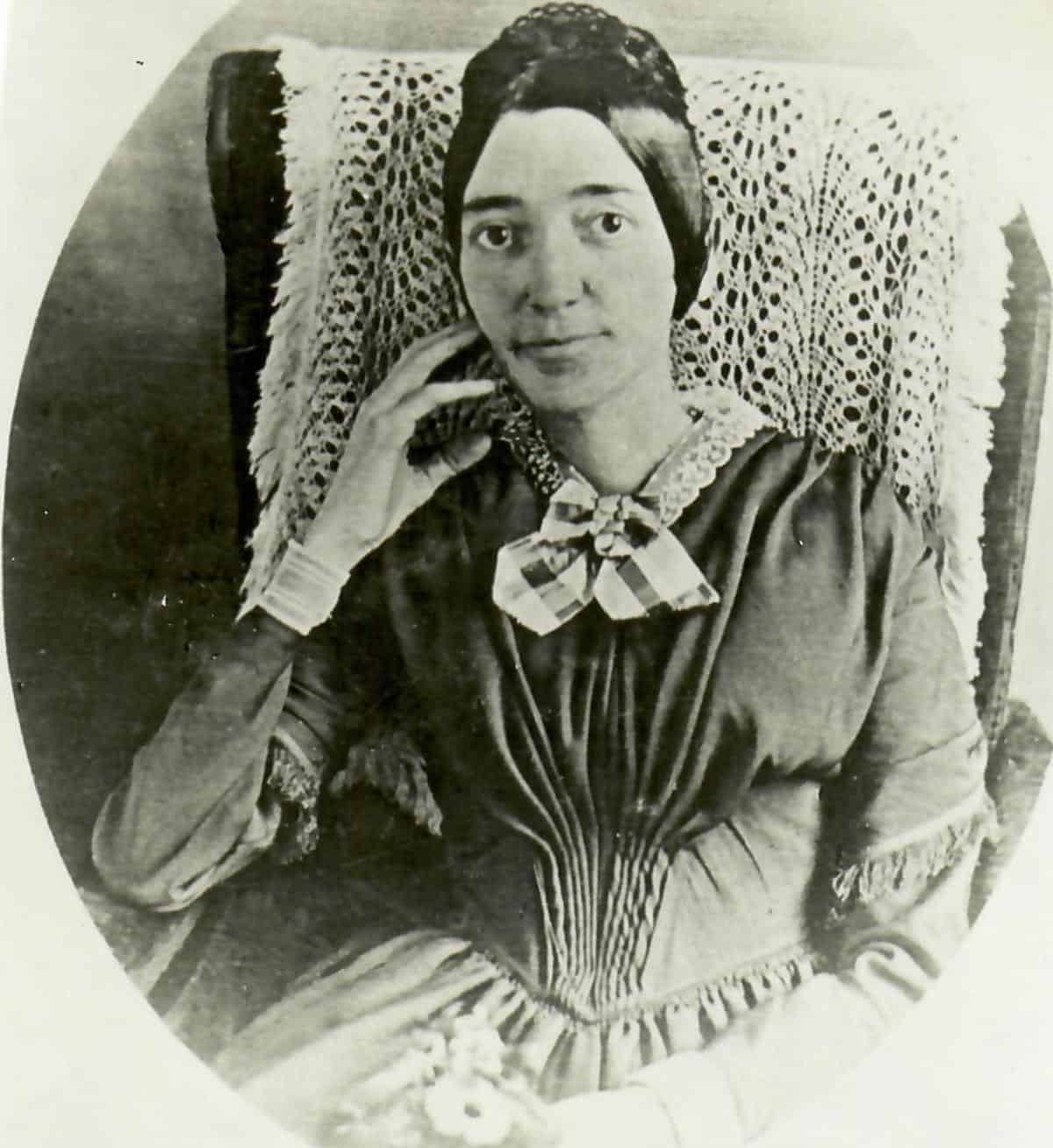(22 Oct. 1812-14 June 1849)

(Maxham daguerreotype from the Thoreau Society Archives in The Thoreau Society Collections at The Walden Woods Project Library)
What little is known about the eldest of the Thoreau children includes that Helen was an ardent abolitionist, schoolteacher, and doting sister to her younger siblings, John, Jr., Henry David, and Sophia. There are few mentions of Helen in most books about her famous brother. However, it is known that she and Sophia visited Henry at his Walden Pond house.
In The Life of Henry David Thoreau (1890), British author Henry S. Salt states that it is because of Helen informing Lucy (Jackson) Brown of Henry’s journal passage with similar ideas as an 1837 lecture by Ralph Waldo Emerson. Salt writes:
That same year, famous abolitionists Angelina and Sarah Grimké visited Concord, giving a lecture at the Trinitarian Parish of Reverend Wilder. The women sparked a wider interest in abolitionism, especially among the women of the town. The Concord Female Anti-Slavery Society (CFASS) was founded on 18 October 1837, with 61 women at the initial gathering. Helen Thoreau was elected Vice President of the new organization. As an anti-slavery activist, she not only wrote letters, promoted the abolition of the terrible institution, she also kept a scrapbook of articles from newspapers including Bangor Daily Gazette, Herald of Freedom, The Liberator, and National Anti-Slavery Standard. The Thoreau family became involved with the Underground Railroad, aiding enslaved people escaping their bonds by providing a safe shelter to rest, however briefly, on their journey to freedom.
When the local First Parish and Trinitarian churches banned women from speaking against slavery in 1842, an angry Helen stopped attending church except to check in to see if the church changed their views on slavery and stopped defending slaveholders. In her obituary, William Lloyd Garrison wrote:
Helen Louisa Thoreau died of tuberculosis in Concord, MA, on 14 June 1849 and is buried in Sleepy Hollow Cemetery.
The Liberator (22 June 1849), “Another Friend of the Slave Gone” by William Lloyd Garrison.

